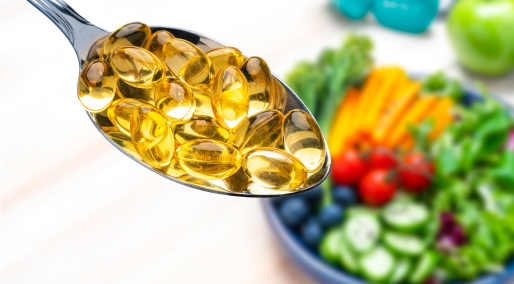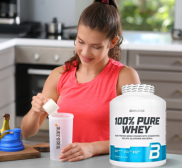Health
- Bones and Joints
- Digestion and Healthy GI
- Essential Oils
- Fish Oil / Omega-3
- Healthy Sleep
- Heart and Cardiovascular System
- Immunity
- Liver
- MCT Oil
- Men
- Mind and Focus
- Minerals
- Pet Supplements
- Pro-Health Supplements
- Probiotics
- Senior
- Superfoods
- Urinary Tract
- Vitamins
- Vitamins for hair
- Vitamins for nails
- Vitamins for the skin
- Weight Management
- Woman
Healthy Diet
Herbs
Mother and Baby
Sport
Your Goal
Pet Supplements
Cosmetics
Protein Supplements
(total products: 171)Health
Bones and Joints
Digestion and Healthy GI
Essential Oils
Fish Oil / Omega-3
Healthy Sleep
Heart and Cardiovascular System
Immunity
Liver
MCT Oil
Men
Mind and Focus
Minerals
Pet Supplements
Pro-Health Supplements
Probiotics
Senior
Superfoods
Urinary Tract
Vitamins
Vitamins for hair
Vitamins for nails
Vitamins for the skin
Weight Management
Woman
Healthy Diet
Herbs
Mother and Baby
Sport
Your Goal
Pet Supplements
Cosmetics
New products
Promotions
Recommended products
Short expiration dates
Types of protein supplements
The most popular protein supplements are:
-
Whey protein: Protein aimed at increasing muscle mass and gaining weight. These are the most common on the market.
-
Isolated proteins: This is a purer protein, has a higher concentration, and is designed for more advanced athletes. They also work for weight maintenance and even weight loss.
-
Gainers: These are proteins or dietary supplements with a nutritional composition that helps you gain weight; in particular, they are used to increase muscle mass
-
Casein proteins: Casein, along with albumin and globulins, makes up the protein fraction of the milk solids of most mammals. Casein is an aggregate of protein and mineral macromolecules; the amount of casein in milk varies among animal species and can range from 10 to 100 g/L.
-
Plant Proteins: These are proteins of plant origin found in vegetables such as broccoli, spinach, peas, and sweet potatoes, in legumes such as soybeans, lentils, chickpeas, pinto, red and black beans, and in nuts such as walnuts. Its formulation is cleaner in terms of fats and, depending on the dose, can be used to increase muscle mass or maintain high performance!
Structure of proteins
Proteins are molecules of amino acids linked by peptide bonds. They are found in all cells of the body, so they are involved in all their functional processes. The chemical composition of proteins is as follows:
-
Oxygen
-
Carbon
-
Hydrogen
-
Nitrogen
-
Sulfur
The function performed by proteins is crucial. Thanks to their nitrogen content, they are beneficial to the growth of the body. They also help in the maintenance of tissues. In addition, they enable the transport of essential compounds through the blood.
What proteins does the body need?
It should be taken into account that the human body does not store proteins like fats, so it is important to consume protein every day. People, who want to follow a diet rich in protein products often ask themselves, what proteins does the human body need? Or what are the essential proteins? In this case, it is important to know that the human body needs different amounts depending on different parameters; age, physical activity, and health status. Animal protein intake should be taken in moderation, as meat is usually rich in other nutrients, such as fat. There are protein preparations for dieters or athletes; taking these preparations as a specialist recommends and in the right amount is preferable. For the average adult, the recommended daily intake of protein is 0.83 grams per kilogram of body weight. During the development of children or during pregnancy and lactation, the intake of protein foods should be relatively high since metabolic activity increases during these periods.
Contraindications to protein supplementation
It's important to know that dietary supplements, like almost anything, can be contraindicated in some people and should be taken responsibly. Pay attention to situations when:
-
Suppose you have problems with fluid retention, impotence, acne, or baldness. This is because protein supplements increase testosterone levels and can promote these effects.
-
If you have kidney problems, there is a risk of kidney failure by consuming more protein than normal.
-
When a person has liver or kidney problems, if there is an excess of protein, the body needs to eliminate it; for this, the metabolism changes. In addition, high protein intake can be toxic to the liver and cause kidney stones.
-
Protein supplements should also not be consumed by people prone to bone problems, such as osteoporosis, because excess ammonium in the body is neutralized with calcium phosphate, risking bone decalcification.
Also note that protein supplements in large doses can cause thirst, cramps, diarrhea, lack of appetite, and fatigue.
How much protein do you need to consume?
Although amounts may vary depending on each person's characteristics, the daily requirement for protein as a nutrient for the general population is between 1 and 1.2 grams per kilogram of body weight per day. In the athletic population, safe and valuable values can rise to 1.5 and 2.5 grams per kilogram of weight per day. As long as the diet (including food, other sources and supplementation) provides protein levels that fall within these recommendations, the amounts will be normal.
Protein supplements for athletes
In athletes, as mentioned earlier, protein impacts muscle mass, strength, hypertrophy, lean body mass, recovery during training and physical performance.
Although supplements of this nutrient are an excellent tool for better sports performance or to supplement any nutritional deficiencies within a healthy diet, they should not be understood as substitutes for any food or meal replacement. And it is that a widespread mistake is to trust them to improve performance or health without starting with a healthy lifestyle. For this reason, consider the following variables before deciding to take supplements:
-
Food: have a proper diet designed according to the goal, with adequate distribution of macronutrients ( proteins, carbohydrates, and fats ); and the recommended daily allowance of micronutrients ( vitamins and minerals ) and water.
-
Training: know the type of physical exercise that will be done, and assess the intensity, volume, and duration.
-
Rest: think about a person's stress level and sleep habits (quantity and quality).
When these variables are controlled, we've already had quite a bit of success, as there is no good supplementation to correct a bad diet, training, or rest.
How to choose a protein product
When choosing a protein nutrient, you will find many types (extracted from casein, whey, egg, soy, rice, pea, and beef), but no matter what you are interested in, there are three basic aspects to consider:
-
Efficacy: if its properties have been obtained in clinical trials, the results of which have been published in scientific journals.
-
Safety: if it has been studied and proven that the substance does not cause short- or long-term side effects that can affect health.
-
Composition - pay attention to whether you are buying a high protein concentration or a more gainer nutrient.
If either of these points must be clarified, we must rule out the supplement. However, once we have a safe, legal, and effective supplement, we must evaluate whether it suits us. To do this, it is best to consult a nutrition professional.
You can buy many protein powders - even gluten-free, vegan products on our site.


















